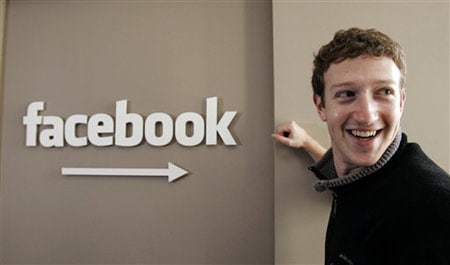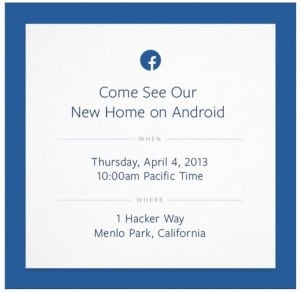
A Facebook phone? That has got to be the worst idea to come out of the Valley since… since… well, since the last Facebook phone. The company has dabbled before in the space, allocating resources. There hasn’t been much to show for it yet. A Facebook button has adorned phones in the past, but that was hardly a game changer. No doubt, this go around, the news will be significant.
Still, the big question remains: why?
Why does the world need a Facebook phone?
And if Mark Zuckerberg does unveil it this Thursday as is widely expected, what will make us want to have one? This is a world overflowing with Androids of all stripes and colors – not to mention price points that satisfy budget and premium smartphone shoppers alike. Apple, meanwhile, has a lock on the apps world, and has broadened its portfolio to include a well-integrated line-up of mobile devices: iPhone, iPad, iPad Mini, iPod Touch, and MacBook.
Facebook already runs on all iOS and Android devices via a native app. You can poke, like, message at will on the go.
Vertical integration, as many are discussing, is not entirely the end result, at least not at this point. So long as Facebook plans to build this phone on Google’s Android operating system they are beholden to a platform outside of their control. Yes, its engineers and devs can build a custom skin on top of Android, as they will assuredly do. A custom-spec’d hardware build (HTC is rumored to be the partner of choice) is also within their control. Tally it up and you have: hardware by HTC, operating system by Google, customizations by Facebook. With the iPhone by comparison you have: hardware by Apple, operating system by Apple, customizations by Apple. The former is not vertical integration; it’s hard to understand the motive for wanting to build a “Facebook Phone.”

Advertising comes to mind as one (key) reason why a Facebook Phone received management’s blessing.
Facebook’s mobile push is a key tenant of its ad strategy. Eyeballs are increasingly on tablets and phones. As the desktop/web becomes less relevant, Facebook needs to follow the crowd. The Facebook app, as it exists today for iOS and Android, is its only channel for ad distribution- and hence revenue. A Facebook phone, on the other hand, opens up the playground, and enables ads (and services) to be integrated across the device, not just solely within the app. It’s not hard to imagine Facebook integrating its messaging into the core of the OS, augmenting Google search with its own social graph, and implementing contextual features based on the intersection of our location and interests (all of which Facebook has deep understanding).
From Facebook’s perspective controlling a mobile platform via its own phone could make sense. It opens the door to more ad dollars – and enables the social platform to become better integrated into the mobile experience, which in turn could result in increased service usage and customer loyalty.
But–and this is a big but–in this scenario the value to the consumer is wanting.
Again, why on earth would we want to be restricted to a world that is increasingly seen as a best-in-class meme generator, a place where we’re begged 24/7 to play Mad Skeletons (and Mad Burger!), a town littered with self-shots, and taco shots.
Today, if we want a dose of social networking, we can open up a Twitter app or the Facebook app. We get in, have some fun, then get out. Facebook wants to shake the living sense (and practicality) out of this paradigm. Instead, we’d become Facebookers day and night. In the end, Facebook wants a Facebook Phone more than consumers do.
Forget all this. Casio should make a TweetWatch – 140 character red LED screen, cool (mono) beeping sounds, and a clock.

